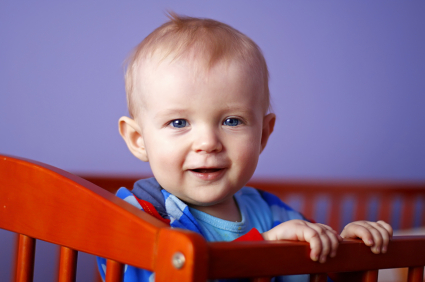Practical advice for that first night away
Kara Mcleod of Sunrise, FL, says leaving her daughter, Madeline, overnight with relatives for the first time was like ripping off a Band-Aid. She knew it would be painful, but she just needed to get it over with. “I thought it might be incredibly hard and I might never do it again, but I had to give it a try,” she says.
Bonding with your newborn is one of the most intense periods in your life, so it’s natural to feel anxious about your first overnight separation, says Debbie Glasser, PhD., a licensed clinical child psychologist in Richmond, Virginia, and founder of newsforparents.org. “There’s an intense quality to the relationship between a newborn and a parent,” Says Glasser, a mother of three. “You spend 24/7 getting to know each other. You become an expert on your little one, so separation isn’t something that can feel easy for a lot of moms.”
You might endure a whirlwind of emotions when thinking about leaving your baby overnight, from fear that the caregiver won’t understand your baby’s needs the way you do, to sadness that your baby might actually be OK without you. Or you might feel excited about getting a break from motherhood and then guilt about needing a break. “Those are all very normal feelings,” Glasser says.
How to step away
Make a plan: By preparing for the separation ahead of time, you can combat some of those unsure feelings, and actually enjoy the time apart. Make sure you and your baby are completely comfortable with the caregiver by spending time together prior to the separation. Try an hour or two of separation before you plan to leave for the night. You and baby will feel more comfortable with someone you both know and trust, and the caregiver will learn your baby’s routines and cues.
Write it all down: Create a list of important information such as emergency contacts, feeding instructions, sleep schedules, and suggested activities for the caregiver. Before you leave, establish guidelines for checking in with the caregiver. Make it clear up front what you expect and what the babysitter can expect from you, such as calling to check in at a specified time or needing a detailed blow-by-blow of the day’s activities. “Set parameters that put you at ease, whatever makes you comfortable,” Glasser says.
Consider the timing: Most importantly, make sure you feel ready for the separation and are not being pressured by others. “It’s a very personal decision,” Glasser says. “Listen to your gut, and find what’s right for you. Don’t push yourself.” Although there is no hurry to leave your baby overnight, Glasser says the experience can be helpful for babies when they are becoming more social, when they have developed a schedule, and when you have established a strong relationship with your baby – usually by about six months old.
When all else fails, remember that babies benefit socially by spending time with others. Your little one might learn new self-soothing methods, how to be flexible in her daily routines, and how to develop new relationships. “Each relationship brings something new, and that’s a good thing,” Glasser says. “Each new experience can be enriching for your baby.”
– Wendy Huston
